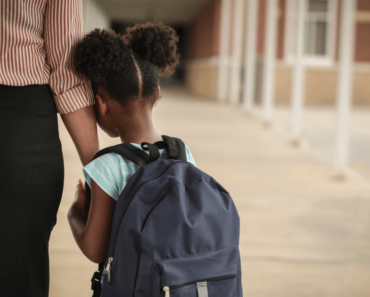If you’re pregnant and have had two COVID-19 vaccines, you’ve likely been told to get boosted right away. If you haven’t gotten it, and it’s because you still have some questions, here are some answers, courtesy of Toronto’s Dr. Tali Bogler, a family medicine and obstetrics provider and co-founder of Pandemic Pregnancy Guide (a must-follow on Instagram).
Should people get a COVID booster while pregnant? How should pregnant people space out their COVID vaccines?
We’re recommending that all individuals who are pregnant, as well as those trying to become pregnant, should receive all COVID-19 vaccination doses, including a booster dose.
Exactly when pregnant individuals are eligible to receive their booster (third dose) depends on the province. In Ontario, it’s three months after their primary series. In BC, doctors are recommending pregnant people get the booster eight weeks after their dose.
Is there a best trimester to get boosted?
The best time to get your vaccine or booster dose is now, regardless of gestation. That’s the best way to protect your pregnancy and fetus, given adverse outcomes associated with COVID-19 infection in pregnancy, including preterm birth.
Studies have found that pregnant people who are fully vaccinated (with two doses of an mRNA vaccine or one dose of Johnson & Johnson) transmit antibodies to newborns during pregnancy, regardless of the timing of their vaccine (i.e. whether vaccinated in 1st, 2nd or third trimester).
A study published in the Journal of Obstetrics and Gynecology showed that a booster dose was associated with the highest maternal and umbilical cord antibodies levels. In this study, the booster was given in the third trimester, but a sustained response is expected in other trimesters as well.
Furthermore, multiple studies show that the vaccine in first-trimester is not associated with increased risk of miscarriage, and when received in the second and third trimester, is not associated with increased risk of preterm birth, still birth, small for gestational age, or congenital abnormalities.
Some pregnant people wonder if the booster is overdoing it—like that there might be some sort of cumulative effect of the vaccine and that two shots are enough. Could there be any truth to this?
We know that our immunity wanes over time, so there is no cumulative effect of the vaccine. This is why we often see multiple-dose vaccines series routinely in children, teenagers and adults.
Does it matter which shot you get? Should pregnant people request one shot over the other?
An mRNA vaccine (either Pfizer or Moderna) is recommended in pregnancy. It doesn’t matter which one—both are safe and effective in pregnancy or breastfeeding and elicit a good immune response.
Do pregnant people have worse outcomes than people who aren’t pregnant if they do get COVID during this Omicron wave?
We don’t have published data yet on outcomes with Omicron specifically in pregnancy. Omicron is still so new. What we know in general is that pregnancy is a high-risk population for many serious COVID-19 complications, including hospitalization and ICU admissions, compared to non-pregnant age-matched peers, and is associated with twice the average risk of preterm birth.
Since antibodies from the vaccines wane over time, shouldn’t pregnant people consider waiting until the last trimester to get their vaccine so their baby has the most protection?
The primary goal has always been to protect the pregnant mom from COVID-19 complications and for that reason, they should get their booster whenever they are eligible.
A secondary benefit of the vaccine is that antibodies will be passed to the infant. There’s a study that looked at anti-COVID antibodies in infants who were two months old and six months old from mothers who were vaccinated during pregnancy. Most were vaccinated at the end of the second trimester with two doses of the vaccine. In the vaccinated group, 94% of infants had antibodies at two months, and 60% had antibodies at 6 months. This is compared to only 8% of babies in babies whose mothers had “COVID infection at the six-month mark.”
There’s another study that shows that pregnant people who were vaccinated even six weeks before they became pregnant had anti-COVID antibodies in the cord blood.
Right now, we’re seeing an uptick in hospitalized infants with COVID in Ottawa and at SickKids in Toronto. Vaccination in pregnancy will help protect your babies when they’re born, regardless of when you got vaccinated in your pregnancy. This is exactly why we give the whooping cough vaccine in pregnancy and we see the same for the flu vaccine. It is well-studied in flu and whooping cough that maternal antibodies from vaccination during pregnancy provide protection to the baby for six months of a child’s life.
What are the primary concerns of your pregnant patients who are hesitant to get vaccinated or boosted?
Most people who are hesitant seem to be worried about the lack of long-term data of the vaccine. They usually have no specific ideas about what could happen down the road, but they are worried that something could.
I usually answer this by first saying “of course we want more data, rather than less.”
But what we know is that mRNA vaccines have been studied in humans since 2013 with no known long-term effects. The mRNA in the COVID-19 vaccine is broken down by the body in two to three days, and the protein may stay in the body for up to two to three weeks. Any potential side effects tend to happen in the first six weeks. We also have studies demonstrating that the mRNA vaccine itself does not cross the placenta—it’s the maternal antibodies that cross the placenta.
When my patients ask me about long-term implications on the baby, I remind them to think about the long-term health implications associated with preterm birth, for which the risk doubles if you’re unvaccinated and contract COVID in pregnancy.
We also have excellent long-term data from other vaccines that we routinely give in pregnancy, like the flu vaccine and the whooping cough vaccine. Studies that have followed children for the first three to six years of life have found no adverse health outcomes in the children.
The other concern from pregnant patients is that there isn’t enough data on the effect of the vaccine in pregnancy on the fetus. But we actually have a lot of safety data at this point. More than 180,000 pregnant individuals have been vaccinated in the USA, and 100,000 in the UK, with no safety concerns appearing in reporting. 14 large studies from five different countries (including data from Ontario) with a total of 135,103 people vaccinated in pregnancy have found no increased risk of miscarriage, preterm birth, stillbirth, SGA (small for gestational age) or congenital abnormalities.
On the other hand, COVID-19 infection in pregnancy is associated with adverse maternal and pregnancy outcomes including increased need for hospitalization, ICU admission, stillbirth and preterm birth.
The bottom line is, the COVID-19 vaccine is safe in pregnancy, but a COVID-19 infection is not.
The Children’s Hospital of Eastern Ontario (CHEO) recently said it was seeing an alarming trend of infants getting COVID after being born to unvaccinated mothers. What are your thoughts on that?
CHEO is tracking the vaccination status of mothers whose infants were admitted to hospital with COVID, and found that all the admitted infants’ mothers had not been vaccinated. Infants are especially at risk because they have an immature immune system that has difficulty combating disease. And if the mother has not been vaccinated against (or infected with) COVID-19, they do not have the protection of maternal antibodies transferred during the third trimester of pregnancy. It is well-studied in other infectious diseases, such as flu and whooping cough, that maternal antibodies resulting from vaccination provide protection for the first six months of a child’s life. And we now have some research that with COVID-19 vaccination, antibodies last in the infant for the first three to six months of life as well.
I think it’s an excellent example of why it’s so important to get vaccinated and boosted during pregnancy. Not only will it protect you during your pregnancy, but it can also protect your baby in the first few months of life.
If a pregnant person gets vaccinated after the baby is born, will protective antibodies get passed through breastmilk?
Many studies have shown that when you get vaccinated while breastfeeding, there are antibodies in your breastmilk that get passed along to the baby. But, there is a difference in the antibodies delivered to the baby through the placenta when pregnant and the antibodies in breastmilk.
Generally speaking, antibodies that are transferred through the placenta are more effective and longer lasting. Called IgG antibodies, they can last up to three to six months, as compared to IgA antibodies from your breastmilk, which coat your baby’s mouth, nose and gut. They get sloughed off as your baby coughs or sneezes. Next time you feed, they will get topped up, but you will have to continue feeding the baby with breastmilk to continue having that protection.
So if you didn’t get vaccinated in pregnancy and you are postpartum now or breastfeeding, please go get vaccinated. It’s not too late, and by protecting yourself and all eligible members in your household, you are also protecting your baby.

































